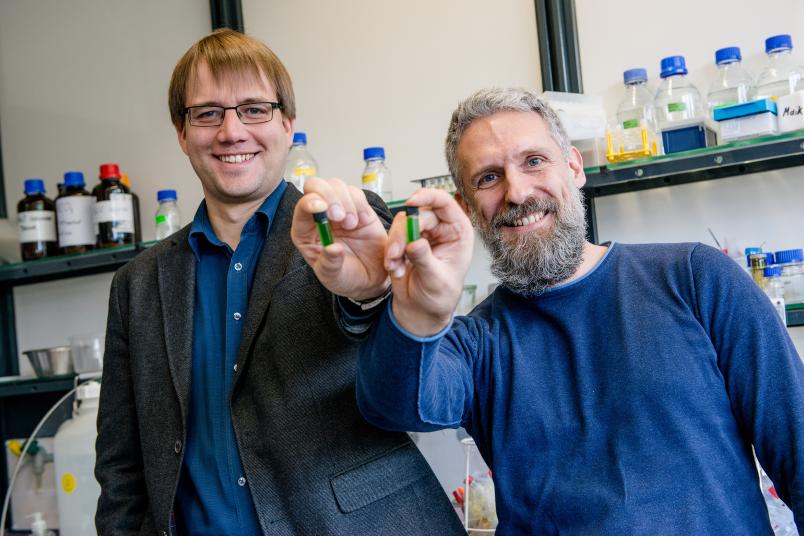
Sustainable chemical processes RUB researchers use cyanobacteria for the production of chemicals
In order to manufacture chemical products, a high energy input is required, which consumes mainly our fossil resources. At RUB, two scientists are researching into a resource-efficient and sustainable approach.
Prof Dr Robert Kourist from the junior research group Mikrobielle Biotechnologie and Dr Marc Nowaczyk from the Chair for Plant Biochemistry have succeeded in genetically modifying cyanobacteria, thus creating cells that produce enzymes for the manufacture of basic and fine chemicals. The bacteria also supply the energy required by the enzymes – by performing photosynthesis. A report on their work has been published in the renowned journal “Angewandte Chemie”.
No external supply of chemical energy necessary
To fulfil their function as biocatalysts, enzymes require chemical energy, which is typically supplied in form of sugar or other high-energy bonds. The researchers from Bochum, on the other hand, take advantage of the fact that, like plants, cyanobacteria perform photosynthesis.
“During photosynthesis, light energy is initially converted into chemical energy. In the second step, that energy is mainly used for binding of carbon dioxide. However, a small percentage of the energy remains and can be directly utilised,” says Marc Nowaczyk. The approach adopted by the researchers is to decouple the supplied chemical energy from carbon fixation and to use it directly for chemical reactions.
No unwanted by-products
Using genetically modified living cyanobacteria as catalysts for photosynthesis driven biotransformations is a new approach. As the researchers point out, they have observed that cyanobacteria catalyse only the synthesis of the desired chemical product in their experiments and, consequently, that they function selectively.
Many catalytic processes produce not just one product, but also a mirrored one, which has to be painstakingly filtered out. “The outstanding selectivity is crucial for deployment in industrial applications,” says Robert Kourist.
Broad application range
The experiments have, moreover, demonstrated that enzymes from other organisms can be successfully introduced into cyanobacteria. This means that the process can be used in a number of reactions. “The chemical industry has to become cleaner,” as Robert Kourist sums up the researchers' ambitious objective. Utilising photosynthesis to catalyse chemical reactions is a promising step towards this aim.